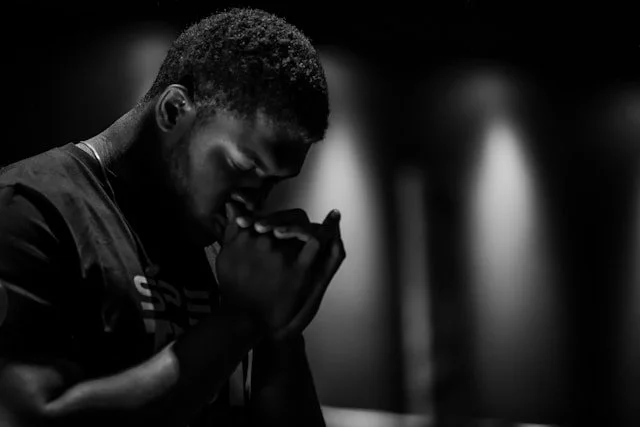Soul is making a comeback: Wyatt Graham begins, “Everything seems to suppress soul. We live to catalyze efficient products. Our labour is counted, quantified, and measured. Human resource departments view us as human resources. They measure our performance by mechanical standards, and our salary relies on whether or not we have added value to a corporation. Work commodifies humans as resources; it is why HR departments exist. You are coal to be mined.”
Gen Z women struggle to find their way in Christian faith and community: A recent Barna study reports, “Currently, young adult women report the lowest rates of Bible reading, prayer and church attendance among their peers.”
A Prayer for the Loud Lord
Today I have the opportunity to share another one of my daughter, Camille’s poems. She wrote this poem during her time serving at the Grand Canyon this past summer. –John
a prayer for the Loud Lord
You are loud here. winds wind through royal blue stone, drowning my breath.
so small. so fleeting. so futile. but the vapor of a whisper.
i don’t need to go anywhere to find you. You are here.
Is Jesus the Chaplain of Your Status Quo?
When was the last time you prayed for a miracle?
Do you ever find yourself struggling to pray boldly in your prayers? I do.
Recently the New Life elders had the blessing of praying for a man with multiple sclerosis. I found myself battling over how assertive my prayers for healing ought to be. Should I be praying more for physical healing, or more for strength and faith as he battles the autoimmune disease?
We hold both of these impulses in prayer. To only pray for the miraculous and neglect the formative aspects of suffering is to fall into the lie of the prosperity gospel…
Have You Given Me the Fountain, but Deny Me the Stream?
My co-lead pastor, Greg Lavine, and I lead discipleship groups that run concurrently through the school year. We take a group of men or women through a year of study that includes theological and spiritual formation. Currently we are in a stretch focused on the practice of prayer. In one of the weeks we use two books of compiled Puritan prayers: Valley of Vision and Piercing Heaven. The idea of utilizing Puritan prayers might sound as exciting as watching someone else fill out their tax returns, but I have found these books vibrant guides.
This Week's Recommendations
1. Don’t scratch the itch: Brittany Allen begins, “I have a weird problem. When I get in the shower, my legs inevitably begin to itch like crazy. I cannot for the life of me find the self-control it takes to not scratch. I have a condition called dermatographism that causes my body to react to scratching with hives. By the time I step out of the steaming hot water, my thighs are covered with wheals. I scratched the itch and the itch only intensified.”
2. Should Christians plead the blood of Jesus? Wanjiru Ng’Ang’A explains the history of this prayer and then offers a warning,
What if Paul Could Coach You on Your Prayer Life?
Most people pray. Many of those don’t even consider themselves Christians. In a recent survey, 61% of Americans said they pray.
If your prayers were recorded and played back to you, what would they sound like? How do you refer to God when you pray? Do you have ruts in your prayer life? What do you pray for most? 76% of Americans said their prayers focus on loved ones in crisis. What don’t you pray for?
What if I were to tell you that you could be coached in prayer by the Apostle Paul. If you’re like me, you’d pay a pretty penny to go to that seminar!
You and the Universal Church
Healthy Christians know that the Church is bigger than their church. We call this the universal church, the collective body of all followers of Jesus worldwide and across history. This spiritual entity is invisible, transcending denominations.
Unhealthy churches and denominations communicate directly and indirectly that they are the only true church. Unsound churches make the opposite error: not drawing any boundaries for who is outside of the orthodox church.
But what does this mean for the ordinary Christian? For many Christians, it doesn’t mean much at all. Their only meaningful connection to the church is with their church.
This Week's Recommendations
What ‘gentle parenting’ misunderstands about human nature: Michael Reneau and Megan Dent explain, “A core feature of Jesus’ gentleness to sinners was his understanding that they were trapped in a world in which the sinful parts of their nature were likely to be tempted and exploited, again and again. In this sense, sinners were indeed victims. But Jesus suggests that their problem was not that other human beings weren’t catering to their every emotional need (and in the process, eliding their own), but rather that they had become lost in a longing that Augustine called concupiscence: an immense desire, or ardent longing for fulfilment that often leads one astray, toward hubris, power, violence, lust, or material greed.”
Go To a Funeral
We Westerners avoid death.
When was the last time you walked through a cemetery? When was the last funeral you went to? Our churches no longer have cemeteries, those who are older head to retirement communities and then to head to long-term care or assisted care facilities. The number of funerals held in churches has diminished. Death has become professionalized, antisepticised, and remote.
This Week's Recommendations
Why the world’s greatest athletes don’t get paid like it: Most Olympic athletes truly do it for the love of the game. Mark Dent reports, “26.5% of the surveyed athletes had a total income of less than $15k per year, and another study from the US Olympic and Paralympic Committee found 59% of Olympic hopefuls make less than $25k during Olympic years.”
How to counter the forces that malform your soul: John Mark Comer explains how spiritual formation happens in this brief video.














